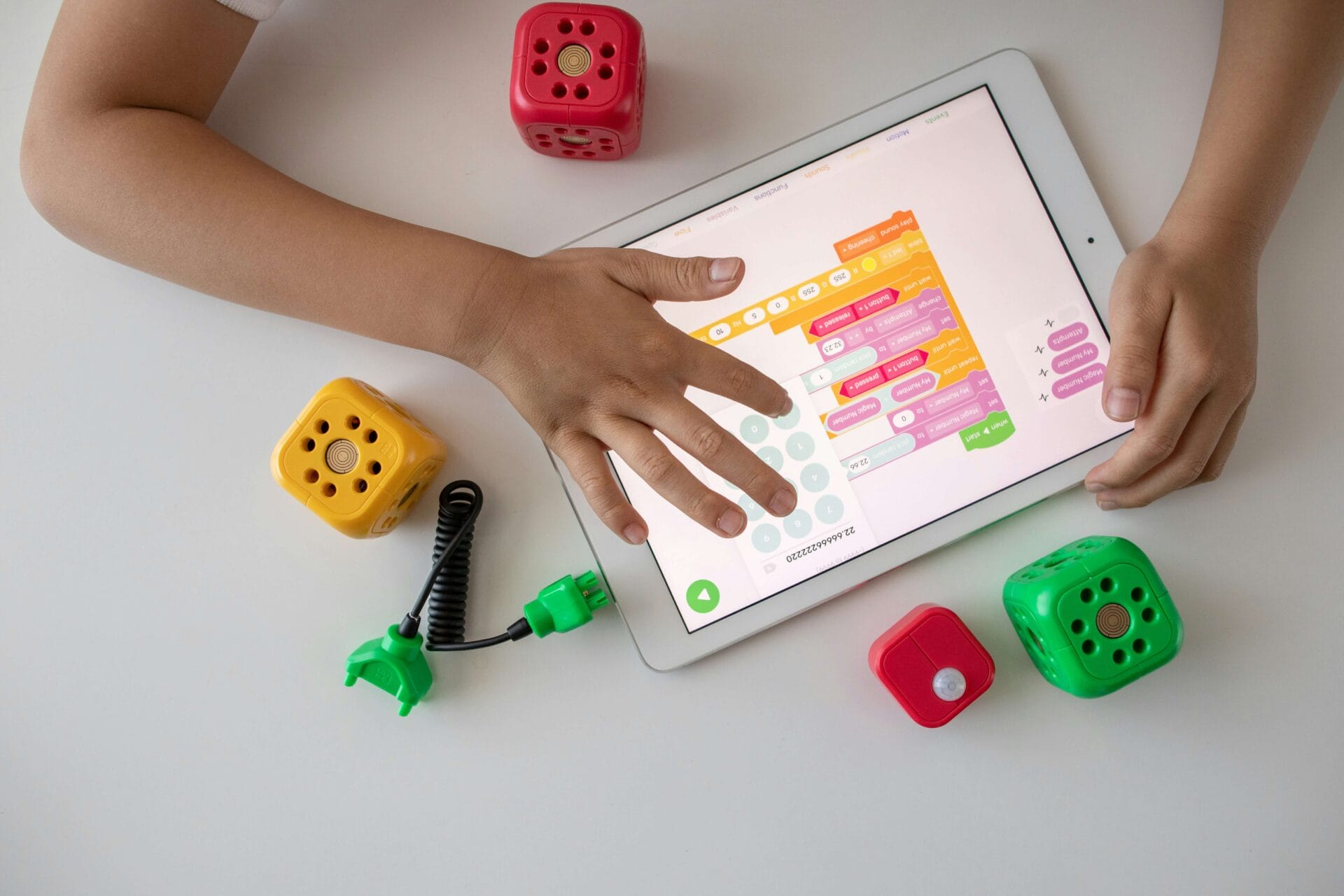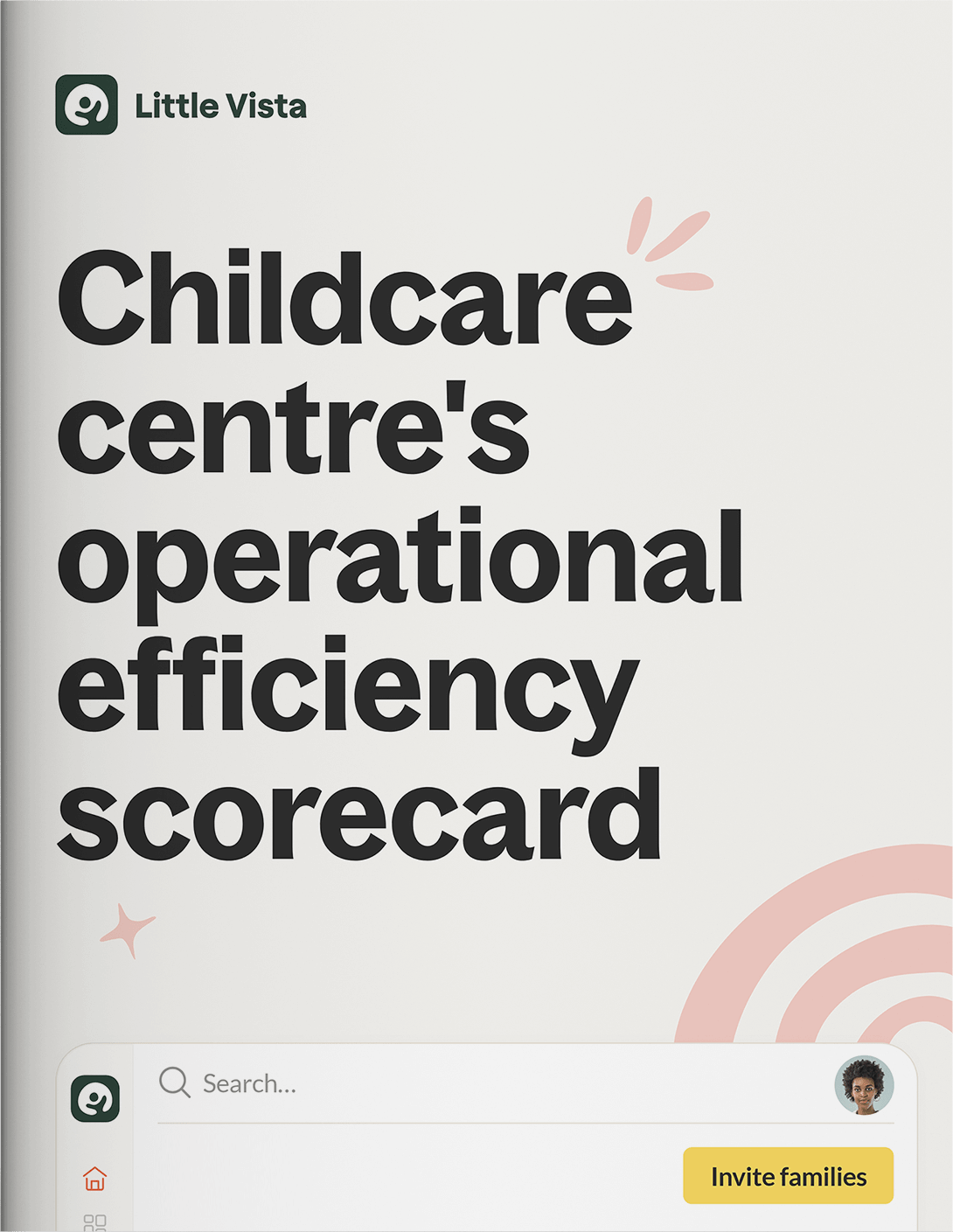
Navigating Current & Upcoming Early Childhood Education Trends in Ireland

Early childhood education in Ireland has undergone quite the transformation in recent years. From the adoption of childcare management software and learning management systems to more adaptive learning and teaching styles, early years learning in Ireland is actively working to align itself with both global trends and local needs.
But as your childcare centre in Ireland continues to adapt and innovate, are you aware of the impact specific trends are having on the level of care you provide?
Before adopting new trends, it’s important to reflect on how these shifts might influence your childcare centre’s ability to stay agile, outperform the competition, and continue to provide an exceptional level of care in a society that demands more, for less.
To help, we’re taking a closer look at some of the key trends currently influencing the childcare sector in Ireland, as well as some upcoming ones to watch!
1. Integration of Technology in Classrooms
In classrooms across Ireland, the integration of digital tools and educational technology has become increasingly common. Not only does this adoption reflect a growing recognition of technology as a tool for enhancing the learning experience, it also reflects a more student-centred and ‘engaged’ approach to education.
But, as a modern childcare centre, it’s important to recognise both the benefits and challenges associated with technology integration in the classroom, and the impact they can have on your childcare centre’s operations.
Benefits of technology integration:
- Enhanced learning experiences: Educational apps, interactive whiteboards, and online resources can engage children in new and exciting ways, making learning more dynamic and interactive.
- Individualised instruction: Technology allows educators to tailor instruction to meet the diverse needs and learning styles of each child, providing personalised learning experiences that promote academic growth and a lifelong love of learning.
- Access to diverse resources: Digital tools provide access to a wealth of educational resources, including multimedia content, virtual field trips, and interactive simulations, enriching the curriculum and expanding children’s horizons — all without having to leave the classroom!
- Collaboration and communication: Online learning platforms and digital collaboration tools can help facilitate better communication and collaboration among educators, parents, and children, promoting a sense of community and teamwork.
- Preparation for the digital age: Integrating technology into early childhood education prepares children for the digital world they’ll someday have to navigate alone, equipping them with essential digital literacy skills and problem-solving abilities.
Challenges of technology integration:
- Screen time concerns: Tech integration in the classroom has raised concerns about the impact of excessive screen time on children’s physical health, cognitive development, and social-emotional well-being. Educators must learn to strike a balance between technology use and other forms of learning.
- Digital divide issues: Access to technology varies among families, leading to inequalities in educational opportunities. Childcare providers must ensure equitable access to digital resources for all children, regardless of socio-economic background.
- Privacy and security risks: Collecting and storing children’s personal data and online activities can pose privacy and security risks. This means childcare centres need to do their research, only partner with reputable digital providers, and implement strong data protection measures and privacy policies.
- Professional development needs: Educators may require training and support to effectively integrate technology into their teaching practices, including access to technical support resources and ongoing professional development opportunities.
- Maintaining a balanced approach: While technology offers many benefits, it should complement — rather than replace — hands-on, experiential learning opportunities. Childcare centres must ensure that technology use aligns with best practices in early childhood education and promotes children’s holistic development.
Tip: Traditional teaching methods still have a place in the education industry. For example, in areas like soft skills training, student success often hinges on the direct guidance and mentorship provided by experienced educators with specialised training.
2. Emphasis on Outdoor Learning
One notable trend in Irish educational settings is the emphasis on outdoor learning.
Recognising the value of nature in child development, educators are now incorporating outdoor activities into their curriculum.
But how can you make the most of this trend, with limitations like weather, safety, and space concerns tying you down?
Here are some examples of how to embrace the benefits of outdoor learning, even with these challenges:
1. Have agile indoor/outdoor lesson plans
In addition to promoting better respiratory health and immune function, outdoor activities encourage children to be active, promoting physical fitness, coordination, and overall well-being.
But, because the weather in Ireland can be unpredictable at the best of times, it’s important to have flexible lesson plans in place. This will allow you and your staff to embrace the fresh air and natural surroundings, and take lessons outdoors whenever you can!
2. Incorporate multi-sensory experiences
Outdoor environments provide rich sensory experiences that engage all the senses. But promoting a familiarity with nature can also be carried out inside when it’s raining.
Encourage children to explore the textures, sounds, smells, and sights of nature through hands-on activities like planting crocus or daffodil bulbs, listening to animal sounds on the computer, or making use of virtual zoo experiences. This will help them tap into the sensory elements of the outdoors and stimulate curiosity, without having to venture outside every time.
3. Promote nature-based inquiry
Encourage children to ask questions, make observations, and seek answers through exploration and investigation, both indoors and outdoors.
For example, create opportunities for nature-based inquiry by setting up observation stations with magnifying glasses, binoculars, and ‘field note journals’ to encourage children to observe and document plants, animals, and natural elements they come across — whether they’re at home, in class, or exploring new places. This will not only instil a sense of curiosity, it can also enhance critical thinking skills and scientific understanding.
3. Shift Towards Child-Centred Pedagogies
In line with global educational shifts, Irish early childhood education is moving towards child-centred learning approaches. These pedagogies prioritise the individual needs and interests of each child, helping establish a more personalised and engaging learning environment.
So, what strategies can your childcare implement to make childcare and early years learning more child-centric, and what impact does each one have on the quality of care you provide?
Here are our insights:
- Embrace child-led activities: Allow children to take the lead in their learning journey by incorporating child-led activities into your daily routines. Offer open-ended materials and resources that encourage exploration, creativity, and problem-solving.
- Establish positive relationships: Build strong, trusting relationships with each child and their family to create a supportive and nurturing environment where children feel safe, valued, and respected. Take the time to get to know each child individually, and actively listen to their thoughts, feelings, and ideas.
- Provide opportunities for choice and autonomy: Empower children to make choices and decisions about their learning experiences, allowing them to follow their interests and preferences. Offer a variety of activities, materials, and learning opportunities, and encourage children to select the ones that resonate with them.
- Create a responsive learning environment: Design your childcare setting to be flexible and adaptable to the changing needs and interests of children. Arrange your space to encourage exploration, discovery, and collaboration, with designated areas for different types of play and learning activities.
- Value and celebrate diversity: Recognise and celebrate the unique strengths, talents, and backgrounds of each child, and create an inclusive learning environment that respects and honours diversity. Incorporate diverse perspectives, cultures, and experiences into your curriculum and teaching practices, and promote an atmosphere of acceptance, tolerance, and mutual respect.
Tip: To further enhance child-centric teaching, consider integrating blended learning approaches into your childcare centre’s curriculum as standard. Blended learning combines traditional face-to-face instruction with online learning components, allowing children to engage with educational content both in the classroom and through digital platforms. This approach not only caters to different learning styles and preferences, it also helps prepare students for the increasingly digital landscape of modern education.
Emerging Trends in Education: The Future of Early Years Learning in Ireland
Looking ahead, the future of early childhood education in Ireland is marked by a whole host of potential new trends and directions.
Which ones do our team think will have the biggest impact on the future of childcare in Ireland?
Here are the top education trends we think you should be planning for:
1. Increased emphasis on sustainability
As environmental concerns continue to grow, we anticipate a greater focus on sustainability in early childhood education.
This includes further initiatives based on eco-friendly practices, nature-based learning experiences, and promoting environmental awareness and stewardship from a young age.
2. Greater focus on community involvement and social-emotional learning
We expect to see more collaboration between the education sector and community initiatives, as well as partnerships with other sectors like healthcare and social services.
This may include programs and initiatives aimed at promoting empathy, resilience, emotional regulation, and positive relationships within the community for children, their parents, and childcare providers alike.
3. Continued innovation in technology
The rapid pace of technological advancement is showing no signs of slowing down, and because of this, we anticipate continued innovation in technology within the childcare sector.
This may include involvement in sectors like STEM and business, and the development of new digital tools and platforms designed specifically for early childhood education e.g. augmented reality and artificial intelligence.
4. Global educational collaboration
In an increasingly interconnected world, we anticipate greater collaboration and exchange of ideas between early childhood educators and researchers from around the globe.
This may involve sharing best practices, conducting cross-cultural research, and participating in international conferences and workshops to stay on top of the latest trends and developments in the field.
Little Vista: Helping you stay ahead
As early childhood education in Ireland continues to evolve, it’s crucial to recognise the significance of these trends in shaping educational outcomes for children.
And, as you navigate these shifts and prepare for the future of early childhood education in Ireland, Little Vista is here to support you every step of the way.
Our comprehensive childcare management software streamlines communications, simplifies administrative tasks, and enhances the overall efficiency of your childcare centre.
With features designed to meet the specific needs of childcare providers, including attendance tracking, parent communication tools, staff management, and more, Little Vista enables you to focus on what matters most — providing exceptional care and educational experiences for the children in your centre.
Ready to see how Little Vista can help you stay ahead in a rapidly evolving educational landscape? Book a demo today!



